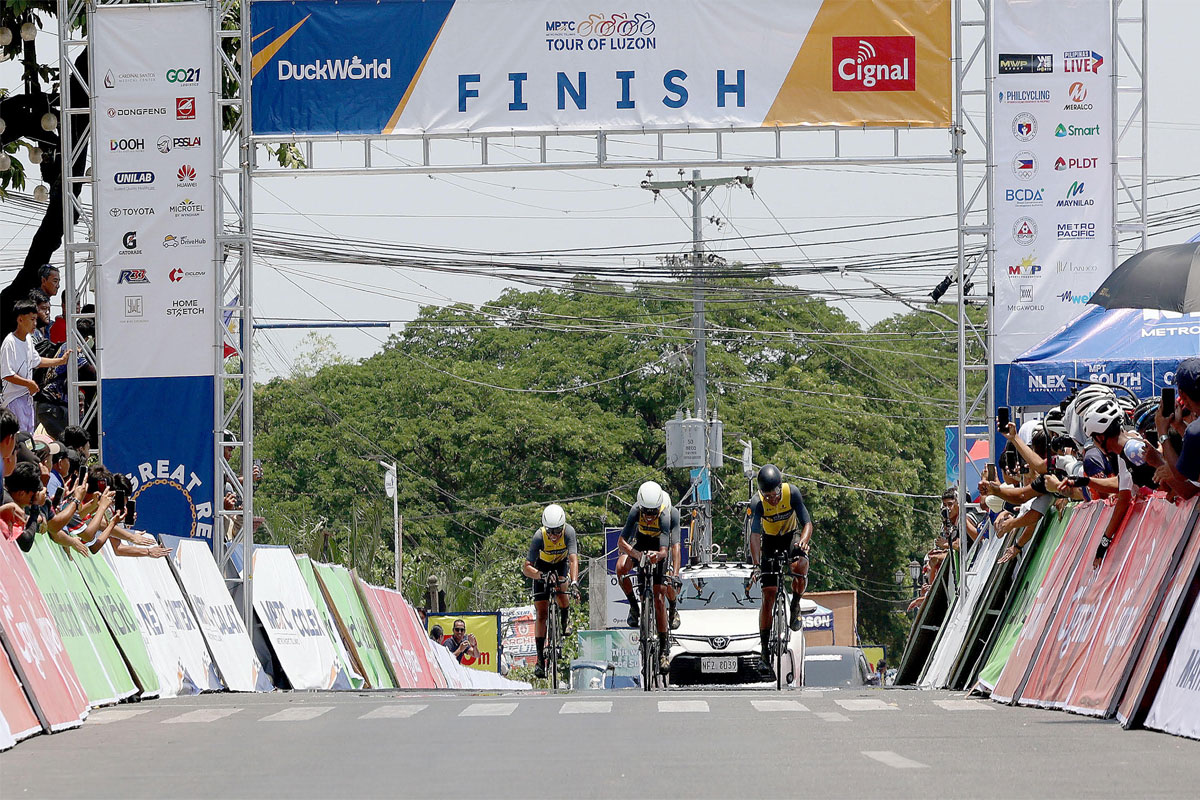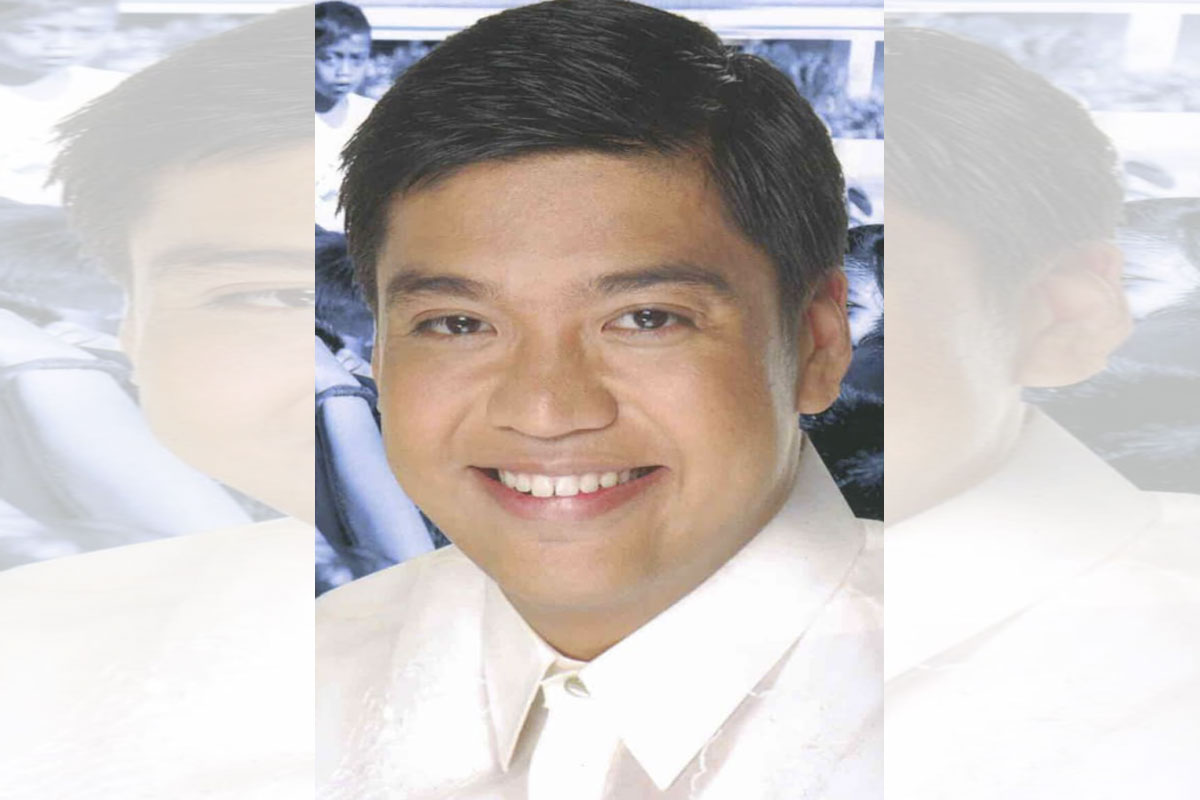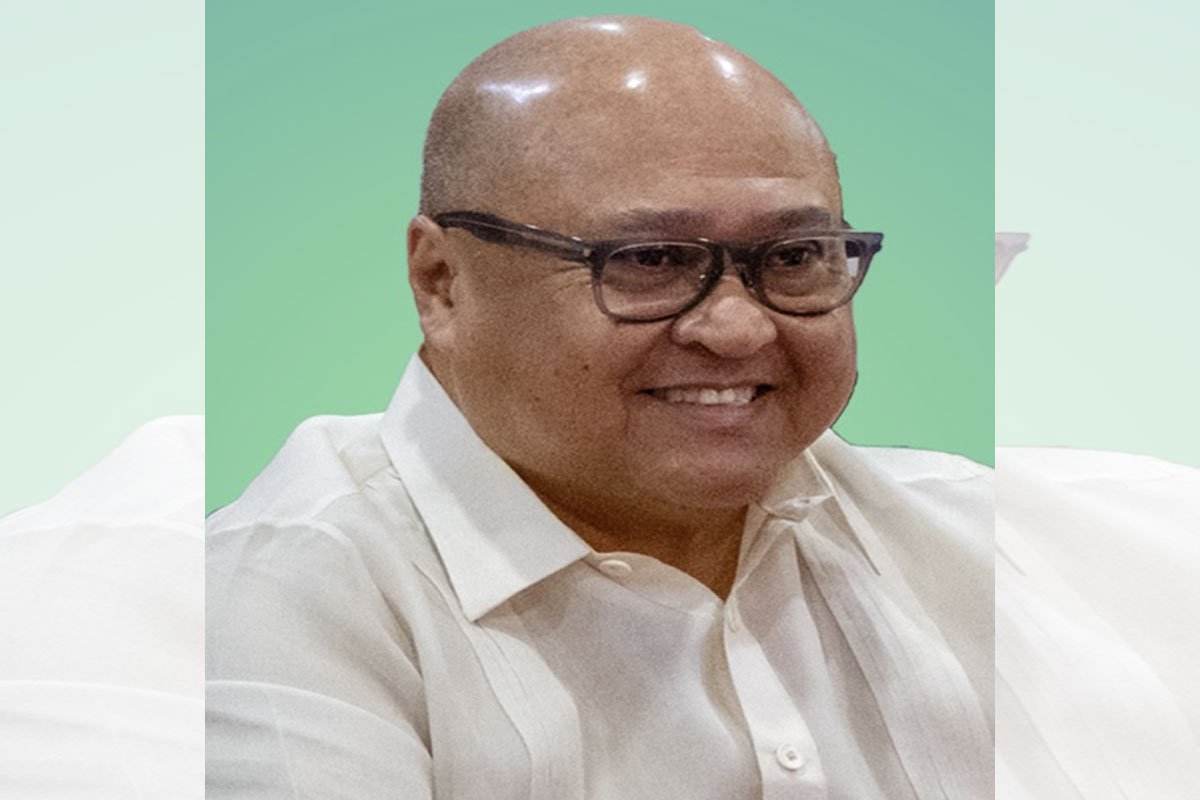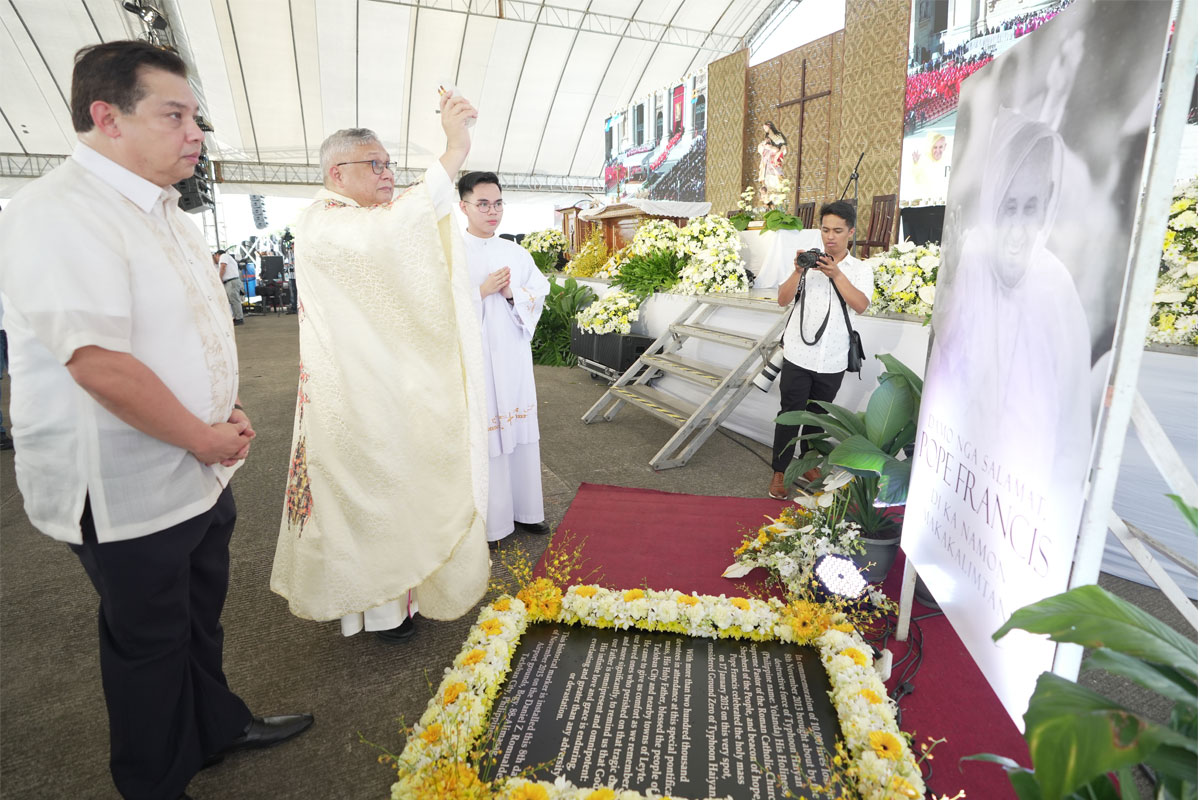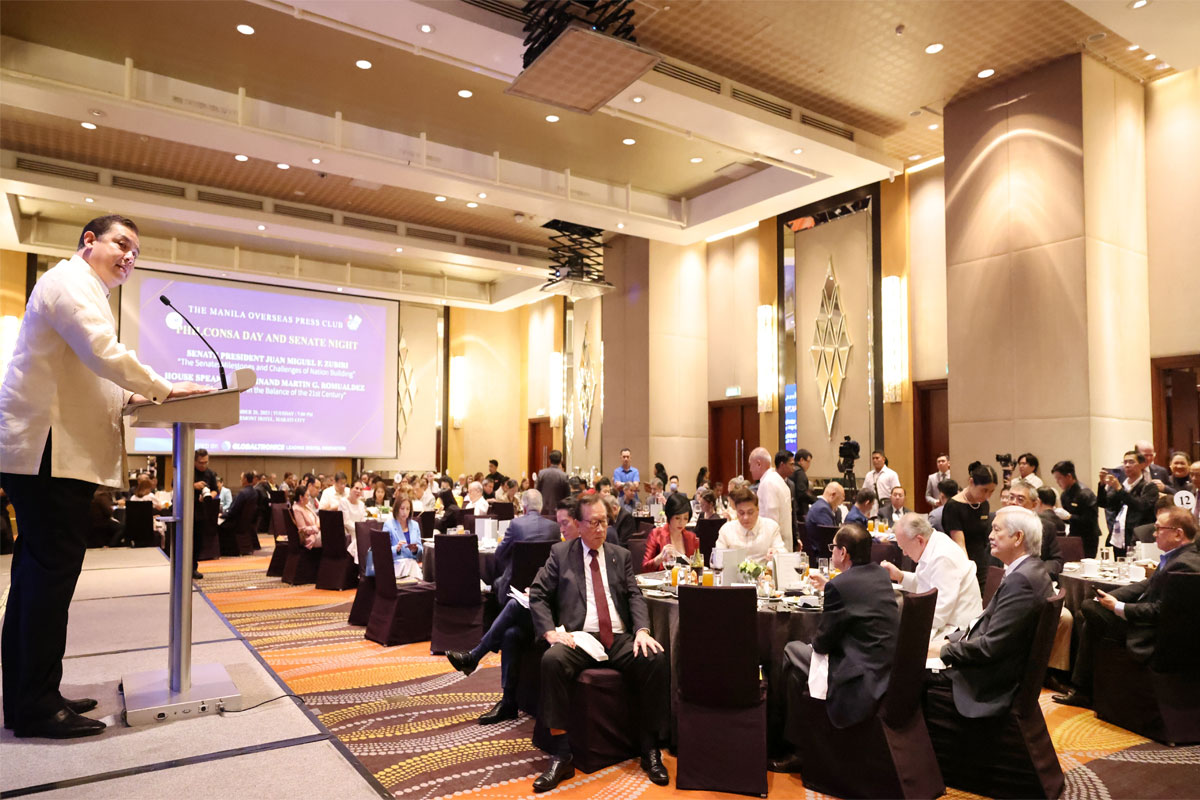 Speaker Ferdinand Martin G. Romualdez speaks on the necessity to amend the restrictive provisions of the 1987 Constitution during the Philippine Constitution Association (Philconsa) and Senate Night, a joint initiative of the Manila Overseas Press Club (MOPC) and Philconsa, held Tuesday at Fairmont Hotel in Makati City. Photo by VER NOVENO
Speaker Ferdinand Martin G. Romualdez speaks on the necessity to amend the restrictive provisions of the 1987 Constitution during the Philippine Constitution Association (Philconsa) and Senate Night, a joint initiative of the Manila Overseas Press Club (MOPC) and Philconsa, held Tuesday at Fairmont Hotel in Makati City. Photo by VER NOVENO
Speaker Romualdez reiterates need to amend restrictive economic provisions of 1987 charter
‘PH missing out on foreign investments to create jobs, spur development’
SPEAKER Ferdinand Martin G. Romualdez reiterated Tuesday night the necessity to amend the outdated and restrictive economic provisions of the 1987 Constitution to attract more foreign investments, create jobs, open income opportunities for our people, and spur development.
In his message during the Philippine Constitution Association (Philconsa) Day and Senate Night at the Fairmont Raffles Hotel Ballroom, Makati City, Romualdez said amending the charter’s restrictive economic provisions could redefine the country’s economic future.
The event is a joint initiative of the Manila Overseas Press Club (MOPC) and Philconsa.
“In summary, our Constitution, as noble and well-intentioned as it is, has elements that are no longer adaptive to our needs,” said Romualdez, leader of the 311-member House of Representatives and President of the Philconsa.
Romualdez was referring to the following: Article XII, Section 10, mandating a 60-40 ownership in favor of Filipinos in the development of natural resources; Article XVI, Section 11, limiting mass media ownership exclusively to Filipino citizens; and Article XII, Section 11, capping foreign ownership of land.
“Amending these provisions isn’t just a matter of law—it’s about transforming the opportunities available to every Filipino. It’s about catalyzing a new era of prosperity, characterized by more robust economic growth, technological advancement, job creation, and ultimately, a better quality of life for each and every citizen,” Romualdez said.
He pointed out that although these provisions were drafted with patriotic intentions, these regulations have unintended adverse consequences, such as limiting job creation, among others.
“Countries like Vietnam and Indonesia have been welcoming foreign direct investments with open arms and reaping substantial benefits, mainly through job creation. We, on the other hand, have missed out on these opportunities due to our stringent regulations,” Romualdez said.
He noted that according to the World Bank, our FDI net inflows grew by an average of just 3.9% between 2010 and 2019, compared to that of Vietnam at 7.6% and Indonesia at 9.4%. In addition he said the World Economic Forum’s Global Competitiveness Report in 2019 placed us at 64th out of 141 countries.
“These aren’t just numbers; they are indicators of lost opportunities,” Romualdez said.
Limited FDI inflow likewise deprives us of essential capital and expertise needed for nationwide development and puts the country at a severe disadvantage in terms of our ability to attract investments in technology as well as in research and development, according to Romualdez.
“Fewer players in the market mean less competition, leading to higher prices for ordinary consumers. This affects everything from the food on our table to the quality of the internet we use,” he said.
“As a nation, we can ill afford to be prisoners of the past; we must be architects of our future. The call for change is both loud and clear, and the time to act is now. With your support, your advocacy, and your belief in a brighter tomorrow, we can take this monumental step forward,” Romualdez added.
While the 1987 Constitution has been monumental in safeguarding our democratic institutions and national sovereignty, the Speaker said the House recognizes that adaptability is a cornerstone of effective governance.
He said the House of Representatives has already made strides in this regard, with the approval of Resolution of Both Houses 6 (RBH 6) and House Bill 7352 in March this year.
RBH 6 calls for a constitutional convention to propose amendments or revisions to the 1987 Constitution while HB 7325 details the procedures for changing the charter through a hybrid constitutional convention, whose members will be made up of appointees from Congress and delegates from each district selected by voters through an election.
Under the bill, the election for this purpose was intended to be held simultaneously with the 2023 Barangay and Sangguniang Kabataan elections in October this year. However, such an election of Con-Con delegates cannot be held since the Senate has yet to pass its version of the bill.
Romualdez said the lawmakers advocated for a constitutional convention as a means to amend or revise the charter because it allows for an in-depth study of constitutional provisions with full representation from all sectors of society.
“This gives it a focused and deliberative nature. And let’s not forget, the people will still have the final say through a referendum, keeping the democratic spirit intact,” he said.







